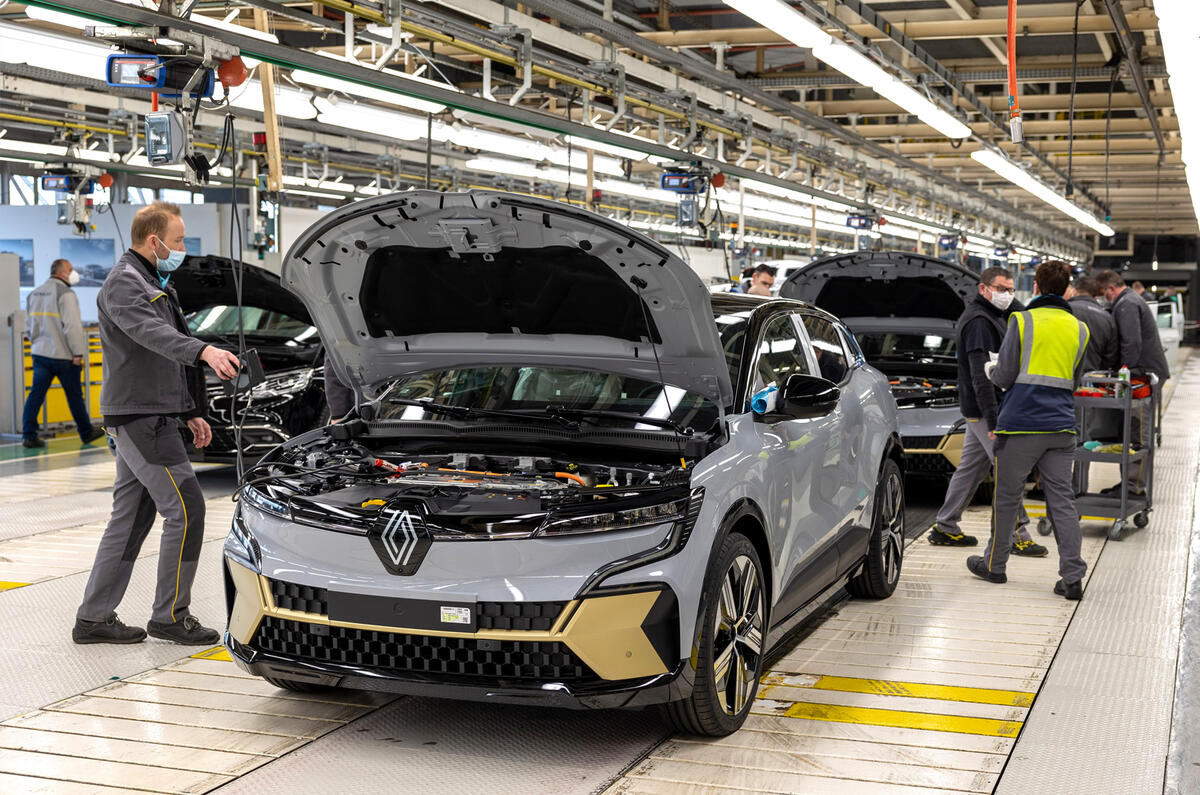The new Renault 4 and Renault 5 will be built at the firm’s ElectriCity factory hub in northern France as part of a huge push by the brand to make its homeland the heart of its EV activities.
The hub, encompassing Renault’s Douai, Maubeuge and Ruitz plants, will produce 400,000 electric vehicles per year. These include the 4 crossover, 5 supermini, the new Mégane E-Tech Electric, the next-generation Scenic and the successor to the Nissan Micra, which will be a twin to the 5.




Add your comment